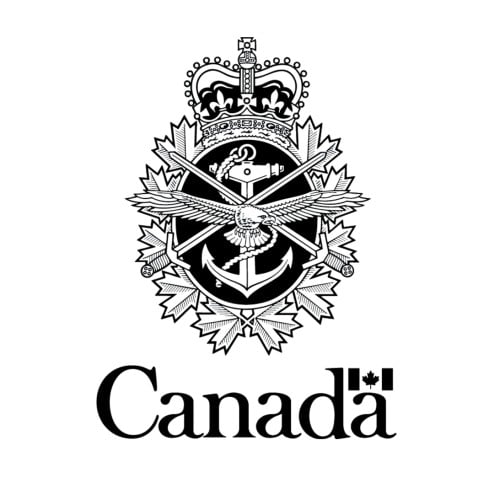
Naval Communicator
Canadian Armed Forces
Montreal,QC- Salary To be discussed
- Published on January 20th, 2025
-
1 position to fill as soon as possible
Description
Opportunity
Are you looking for a fast-paced job with the opportunity to work with some of the most advanced communication and computer systems in the world? As a Naval Communicator in the Canadian Armed Forces (CAF), you’ll play an integral role on Canadian destroyers, frigates and submarines.
Overview
Naval Communicators establish and manage all external voice, radio teletype and data circuits to provide real-time tactical information in support of operations. They maintain communications with national and allied networks over radio frequencies required for mission coordination, using tactical line-of-sight, long-range and satellite communications. Their primary duties include:
- Radio-teletype
- Computer networking
- Satellite, tactical voice and visual communications
- Classified and unclassified computer networks
- Computer-based message processing networks
- Radio communication control systems
- Supporting high-speed data and imagery exchanges
- Tactical signalling and ship manoeuvring advisory
- Encoding and decoding signals
Naval Communicators work with their fellow shipmates in out-of-occupation duties such as watch-keeper or sentry. They may also act as line handlers or ship-hands for entering and leaving the harbour. They participate in search and rescue events, take part in emergency response for security watches and routinely perform ship maintenance and repairs. If necessary, a Naval Communicator may serve as a member of the Naval Boarding Party to inspect the cargo of suspect vessels and detain the vessel’s crew during inspections.
To be eligible to apply to the CAF, you must:
- Be a Canadian citizen or permanent resident living in Canada;
- Be at least 18 years old (17 years old with parental consent), except:
- For the Paid Education programs—you may be 16 years old (with parental consent);
- For the Primary Reserves—you may be 16 years old (with parental consent) and must be enrolled as a full-time student;
- Have completed at least Grade 10 or Secondaire IV in Québec (some jobs need higher levels of education).
Work Environment
While on board ships, Naval Communicators experience the unique adventures and challenges that come with work at sea, such as rough waters and shift work. They work primarily in the Communications Control Room, Operations Room, on the Bridge and the Flag Deck.
When employed ashore, Naval Communicators work in office-like conditions in a high-security environment, typically a restricted-access communications facility. They may work in various duties, such as providing communications support to ships and shore establishments, assisting in the communications flow in Naval Radio Stations, or instructing in Recruit, Leadership or Communication Schools.
Basic Military Qualification
The first stage of training is the Basic Military Qualification course, or Basic Training, held at the Canadian Forces Leadership and Recruit School in Saint-Jean-sur-Richelieu, Québec, or through various training establishments across Canada from Esquimalt, British Columbia, to Halifax, Nova Scotia. This training provides the basic core skills and knowledge common to all trades. One main goal of this course is to ensure all recruits maintain the CAF physical fitness standard; as a result, the training is physically demanding but achievable.
Naval Environmental Training
Naval recruits attend Naval Fleet School Pacific in Esquimalt, British Columbia, or Naval Fleet School Atlantic in Halifax, Nova Scotia, for approximately five weeks. Training includes the following topics:
- Perform General Duties in the Naval Environment
- Perform as a Member of the Force Protection Team
- Perform as a Member of the Damage Control Organization
- Carry Out Survival Drills
Naval Communicator Training
Naval Communicators attend Naval Fleet School Pacific in Esquimalt, British Columbia. Training takes around 29 weeks and includes:
- Communications security
- Information systems security
- Basic communication procedures, such as:
- Basic radio theory and computer skills
- A Plus and Network Plus curriculum
- Keyboarding and message processing
- Frequency management
- Operating radio communication equipment
- Fleet manoeuvring
Available Specialty Training
Naval Communicators may be offered the opportunity to develop specialized skills through formal courses and on-the-job training for topics like:
- Naval Boarding Party
- Basic Submarine Qualification
- Ship’s Team Diver
- Instructional Techniques
Available Advanced Training
As they progress in their career, Naval Communicators who demonstrate the required ability and potential may be offered advanced training. Available courses include:
- Computer Operation (Message Handling)
- Local Area Network Administrator
- Advanced Cryptography
- Communications Policy Directive Planning and Implementation
- Tactical Communication Plan Preparation and Execution
- Communications Security
- Information Systems Security
- Frequency Management
- Advanced Fleet Tactical Manoeuvring
- Leadership and Management
Required Education
The minimum required education to apply for this position is the completion of the provincial requirements for Grade 10 or Secondaire IV in Québec. Foreign education may be accepted.
Direct Entry Plan
If you already have a university or college diploma, the CAF will decide if your academic program matches the criteria for this job and may place you directly into the necessary on-the-job training program following basic training. Basic training is required before being assigned.
Join the CAF
To learn more about becoming a Naval Communicator, visit www.forces.ca, talk to a recruiter at a centre near you or call 1-800-856-8488.
Explore over 100 different career opportunities at www.forces.ca/en/careers.
Work environment
Requirements
undetermined
undetermined
undetermined
undetermined
undetermined
Other Canadian Armed Forces's offers that may interest you






